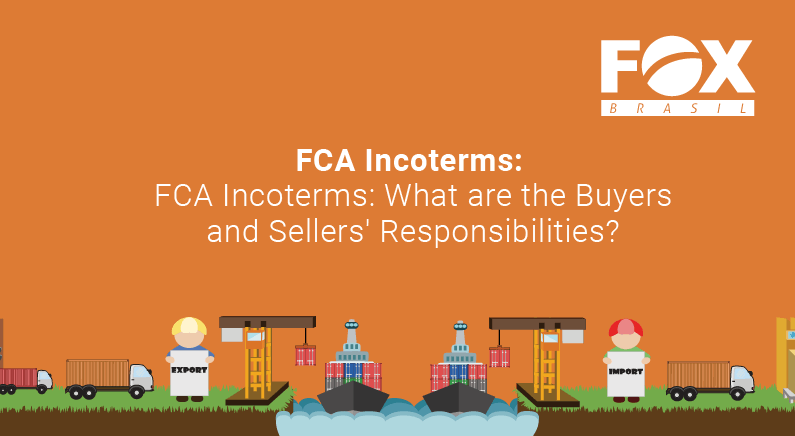FCA Incoterms: What are the Buyers and Sellers’ Responsibilities?

Understand Logistics & Freight
The Incoterms was created by the International Chamber of Commerce as a way to facilitate foreign trade by establishing terms that could be easily interpreted around the world. Currently in its 8th version, the terms were first introduced in 1936 and revised several times to adjust to changes in global trade. In today’s post, we will talk specifically about the FCA Incoterms.
Also known as “Free Carrier”, the FCA term means that the seller delivers the goods to the carrier or another person nominated by the buyer at the seller’s premises or another named place. This rule may be used irrespective of the mode of transport selected and may also be used where more than one mode of transport is employed.
Understanding the Incoterms FCA
In an FCA transaction, the seller is only involved in the movement of the cargo up to a certain point. This point could be the carrier’s warehouse, the buyer agent’s warehouse, the port or any other location agreed between the two parts.
The FCA Incoterms determines the following responsibilities for the seller:
- All pre-export documentation relating to the shipment such as port, customs, transport documentation until the point of delivery;
- Export customs clearance where required;
- Loading formalities if the delivery point is agreed to be the seller’s warehouse/premises.
The buyer, on the other hand, must take care of:
- The transportation of the goods from the point of delivery by the seller until the cargo reaches the destination;
- This could include the ocean leg as well which includes negotiating the rates with the shipping lines;
- The risk of transportation from the point of delivery by the seller until the cargo’s final destination;
- The clearance of the goods at the destination and any movement/risk until the cargo’s final destination.
When using the FCA Incoterms, all obligations, risks, and costs concerning the shipment are the seller’s until the agreed point of delivery, and from that point on the responsibility over the cargo fully transfers to the buyer.
FCA terms could end at the seller’s premises, the buyer’s agent at the port of load, the carrier’s depot or terminal at the port of load or once the shipment is loaded on board the ship at the port of load.
All the points of delivery mentioned above are at the origin and out of the buyer’s control. Therefore, considering the risk passes from the buyer to the seller at this pre-determined place, the point of delivery should be precisely discussed and agreed between both parts in order not to generate any misunderstanding or liability issues.
We hope this content was useful for you to understand more about the FCA Incoterms! If you are looking for ways to reduce the costs to ship overseas, these tips might also interest you!
FOX Brasil – A benchmark of quality in logistics
Established at the heart of São Paulo and operating since 2002, FOX Brasil offers the best solutions in logistics and international transport.
Contact our team for more information, we’ll be pleased to present the most cost-effective solution for your international logistics demand!
